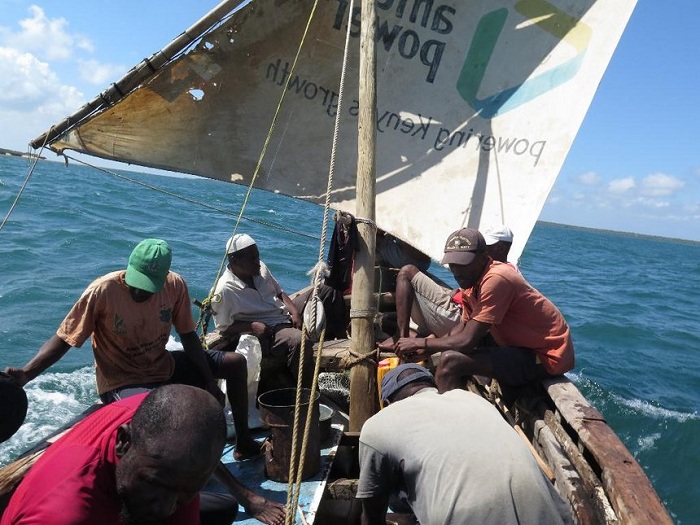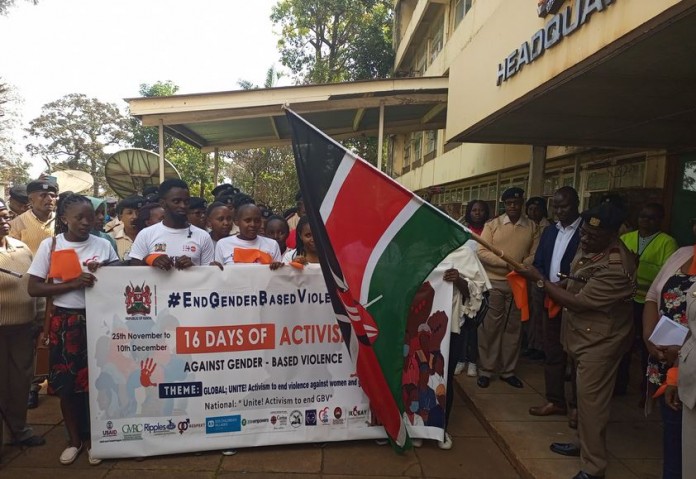As the country accelerates the fight against Gender-Based Violence (GBV) during these 16 days of activism, the reality check is tough to bear.
According to the Director of the State Department of Gender in Kilifi County Georgina Dulu, most cases of GBV in the region include early marriages, rape, defilement, physical assault and murder of the elderly due to witchcraft claims, and economic and harmful traditional cultures.
“We have done analysis for all the wards in the county and in the 35 wards in Kilifi County, 20 of them need immediate action as they contain the highest number of GBV with the remaining 15 needing action to stop the cases from rising,” she said.
Data from the Kilifi County government indicates that in the month of January and February, 200 cases of sexual gender-based violence were recorded with the youngest victim being a two-year-old baby from Bamba.
According to the data, by March the cases were already at 383 compared to 501 cases for the full year of 2021.
As part of ways to stop the violence, the judiciary in November this year launched Children Service Month with the aim of sensitizing the public on the rights of children and to hear, determine and fast-track cases involving children across all court stations.
According to Chief Justice Martha Koome, the move was not only to reduce the backlog of cases but also to raise awareness about children. Since the establishment of the National Council on the Administration of Justice (NCAJ) in 2021, more than 6,000 cases have been cleared in court.
Initiatives by many organizations such as ‘Deutsche Stiftung Weltbevölkerung’ (DSW) Kenya, an international development organization working on the topic of sexual and reproductive health and rights of young people in East Africa, are hugely contributing to change in the community.
During a radio session at Baraka FM’s Pozi 254 show, Steven Kibindio, a project officer at DSW Kenya called for the reporting of GBV cases saying it’s the only way to stop and prevent the cases.
He added that evidence was crucial when filing GBV cases.
“I like advising people that when you have reported the case to the police or a health facility and are handed documents such as the P3 form, take photos or photocopies and preserve them well because they are the only ones that will help you get justice. Sometimes people ask for our help but we can’t help because they have even forgotten the OB number,” he said.
Kenya has taken steps in the right direction with major legal reforms such as case management and easy access to health assistance including the P3 form by the survivor and the opening of the first-ever special sexual gender-violence court at Shanzu Law Courts in Mombasa; however, the numbers are still high.
In 2010, Kenya Violence Against Children reported that 32% of young women aged 18-24 years and 18% of their male counterparts in the country reported experiencing sexual violence before the age of 18.
“There is no part of the county that is safe from gender-based violence and this shows that there is a lot of work to be done in order to stop these acts,” said CEC Georgina Dulu.
******
DSW also has a project, HAPA (Holistic Action Project for Young Adolescents), aimed at improving sexual reproductive health for young adolescents aged 10-14 in primary schools in Kaloleni and Mariakani wards in Kilifi County.
The project approach comprises young people teaching themselves in HAPA clubs, which are school clubs that have 45 members, both boys and girls.
They equip them with information that they then pass to fellow club members, further having youth mentors who talk to the young adolescents during visits to different schools and media channels (radio) for a wider reach of young adolescents in and outside the county of Kilifi.
DSW Kenya is a non-governmental organization that focuses on the needs and potential of the largest youth generation in history. The organization is committed to creating demand for and access to health information, services, and supplies for the youth, and to securing their right to a brighter future.













